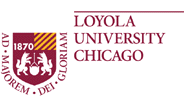

 |
 |
Statement on Academic Integrity for SSOM Students
Recognizing the importance of a climate of self- and peer-regulation among medical students in the preclinical years, the students at SSOM are committed to the development and maintenance of a professional state of character that habitually asserts the primacy of the patient's interests. We share this responsibility with the institution that has undertaken our training and with all those that contribute to our education and development as physicians. While we work with slides, texts, and cadavers, we recognize that each of these experiences prepares us to care for and treat our future patients. Professionalism within the LUMC community recognizes the importance of mercy and forgiveness grounded in an ethos of mutual respect, education, growth, and measured corrective response.
Students are expected to hold themselves and their peers to professional standards of behavior throughout their course of study at Stritch. Included among these standards are the five fundamental values of academic integrity as outlined by the Center for Academic Integrity in 1999:
Honesty. An academic community of integrity advances the quest for truth and knowledge by requiring intellectual and personal honesty in learning, teaching, research, and service.
Trust. An academic community of integrity fosters a climate of mutual trust, encourages, the free exchange of ideas, and enables all to reach their highest potential.
Fairness. An academic community of integrity establishes clear standards, practices, and procedures, and expects fairness in the interactions of students, faculty, and administrators.
Respect. An academic community of integrity recognizes the participatory nature of the learning process and honors and respects a wide range of opinions and ideas.
Responsibility. An academic community of integrity upholds personal accountability and depends upon action in the face of wrongdoing.
To support those goals in our community, the students, faculty, and staff of the Stritch School of Medicine acknowledge the following shared rights and responsibilities:
It is the responsibility of the course directors to specify the limits of authorized aid (including, but not limited to exams, study aids, internet resources, and materials from senior students) in their syllabi and it is the responsibility of the student body to honor and adhere to those limits.
Course directors shall proctor--but not police--all exams in a manner that maintains the integrity of the examination and simultaneously respects students' ability to peer-regulate.
Students not adhering to the professional expectations of the Loyola community shall be held accountable. In breaches of academic honesty, students are subject to those procedures outlined in the academic policy manual. In breaches of professional integrity that contradict our commitment to service as articulated during the white coat ceremony, students will be subject to the same procedures as are all other members of the Loyola community.
Expectations of professional behavior should be explicitly articulated by clinical mentors and evaluated by all to whom students are accountable including mentors, peers, nurses, patients, and families.
If students believe that another member of the Loyola community is exhibiting unprofessional behavior, he/she may discuss the matter anonymously with an advocate, as outlined in the committee on professionalism's suggested procedures governing student maltreatment. If the student believes that anonymity can not be maintained, the behavior should still be reported so that corrective measures may be taken. Students shall be protected from any negative repercussions resulting from their report.
In order to foster the environment of professionalism at SSOM articulated above, the ad hoc committee on professionalism makes the following recommendations:
Professionalism as SSOM shall be peer regulated and the philosophy behind it should foster an environment understanding that to err is human and to improve expected.
Professionalism shall be evaluated in each course by the inclusion of two new course evaluation questions that address the professionalism of the course faculty as well as that of the students taking the course.
Development of student professionalism through a peer regulating mechanism could be structured as follows:
- During the first week of classes, students shall be assigned an advisor. Best efforts will be made to match that advisor with the student's profile. Prior to first meeting with his or her advisor, the entering student shall prepare goals for professional development to be met in the following year.
- Throughout the academic year, students shall be evaluated by their peers during the opportunities that naturally arise throughout the case-based curriculum of SSOM. Lab partners, teams, and small group members shall evaluate one another.
- These evaluations, together with the student's professional goals for that academic year, will be collected and serve to establish the student's professional portfolio. Students will review these evaluations periodically with their advisors in order that areas for improvement can be noted and progress can be tracked and aptitudes recognized.
- Advisors will retain pertinent evaluations that document each student's strengths, weaknesses, and improvements so that a more global assessment of each student's development can be made in the fourth year. Additionally, this information will be made available for inclusion in the student's "Dean's Letter."
It is expected that student's will meet with their advisors four times per year.
Participation in the professional development portion of the student statement on academic integrity shall be a requirement for graduation from SSOM. Participation shall be evidenced by the building of a professional portfolio.
Student participation in their professional development shall be ensured by the following:
- The Office of Admissions shall enclose a letter in one of the pre-matriculation mailings explaining the professional development component of the curriculum.
- Students will be oriented to this program by their upper-class peers during their orientation.
- In conjunction with the white coat ceremony, students will sign a letter indicating their commitment to the student statement of academic integrity.
Return to Professionalism Committee Home Page
©2001 Loyola University Stritch School of
Medicine (SSOM). All rights reserved.
This document is intended for viewing by authorized personnel within SSOM only.